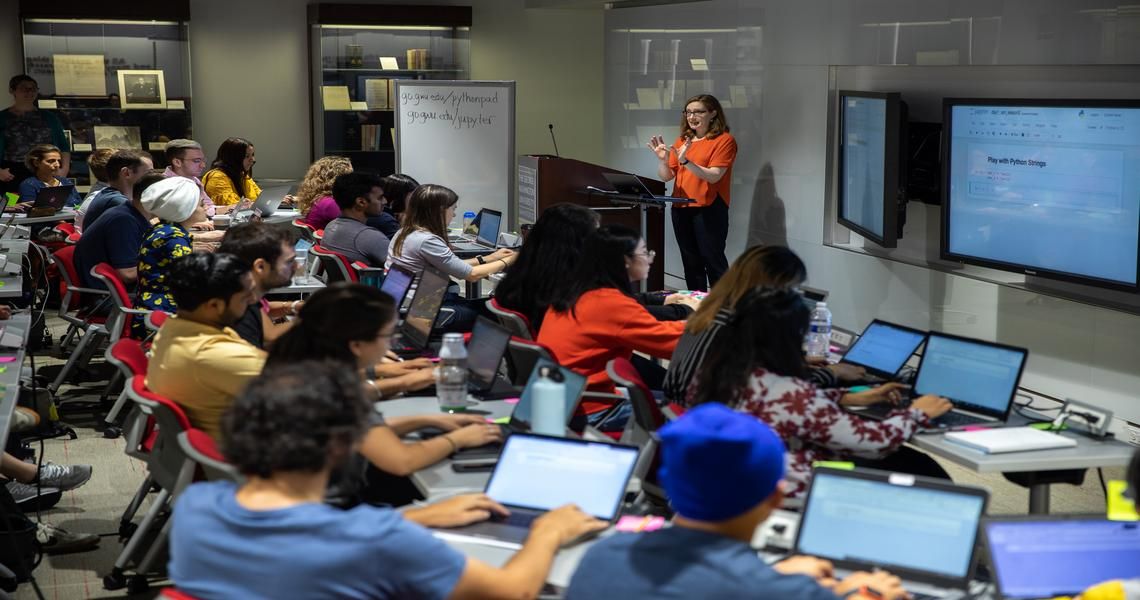
Promoting the Responsible Conduct of Research (RCR) is vital to maintaining the health of our patients and reputation of our institutions. NIH defines RCR as "the practice of scientific investigation with integrity. It involves the awareness and application of established professional norms and ethical principles in the performance of all activities related to scientific research."
RCR education at Children's National and GW takes place in several settings and methods to ensure we provide training to the entire research community. Explore our offerings and resources below.
RCR Training at Children's National
RCR Series
The RCR Series offers monthly presentations and discussions on RCR-related topics, often featuring local and national experts.
- RCR Series Topics
-
The RCR Series covers all areas of RCR, including but not limited to:
- Conflict of interest – personal, professional, and financial
- Policies regarding human subjects, live vertebrate animal subjects in research, and safe laboratory practices
- Mentor/mentee responsibilities and relationships
- Collaborative research including collaborations with industry
- Peer review
- Data acquisition and laboratory tools; management, sharing and ownership
- Research misconduct and policies for handling misconduct
- Responsible authorship and publication
- The scientist as a responsible member of society, contemporary ethical issues in biomedical research, and the environmental and societal impacts of scientific research
- RCR Series Recordings
-
Visit our library of RCR Series Recordings to watch past events.
RCR Training Requirement Information
As a condition for receiving federal funding for health research training grants and career development awards, federal funders (including NIH, DOD, and NSF) require all participants in training grants to receive training in RCR.training
- Who needs to complete RCR training?
-
Anyone supported by or named on a training grant that mandates RCR training needs to complete this training at least once during each career stage, and at a frequency of no less than once every four years. The resources and events connected with this training program, however, are open to all at Children's National.
- Training Requirements
-
Trainees, scholars, and faculty required to complete this training must finish 8 hours of training to satisfy this requirement. At least 4 of these hours must be completed in discussion settings; the rest can be completed via approved online modules, lectures, and other traditional formats. The approved methods for completing this training are detailed below.
- Training Modes
-
With the full understanding that trainees, scholars, and faculty have busy schedules, we have created a hybrid model of training that allows participants to complete the requirement through a combination of on-demand and in-person formats:
Format Description Hours Counts towards discussion hours? RCR Series Presentations Attend bi-monthly presentations hosted by the RCR Series at Children's National. Events include lectures from expert speakers, detailed case studies with experienced investigators, and facilitated interviews around hot topics in RCR. Attend in-person or view online if available. 1 hr/each No Discussion Sections Attend lively, wide-ranging facilitated discussions between trainees, scholars, and faculty that provide participants the opportunity to discuss different areas of RCR in the context of their work and research environment. These will be held bi-monthly. 1 hr/each Yes CITI Training Complete the existing RCR training in CITI. 2 hr No Lab/Department/Mentor Discussions Using guidance materials provided by the Children's National RCR Series team, participants may organize discussions around RCR topics in their research setting. These sessions can be formalized group discussions within a lab/department or one-to-one discussions with a mentor. 1 hr/each Yes Other RCR trainings Credit will also be available for completion of RCR trainings through courses and presentations at other institutions. 1 hr/each training Depends on format - Receiving Credit
-
In order to fulfill your RCR training requirement, you will have to submit proof of each completed training component via the RCR Credit Submission form. In addition to completing the form, some training components require additional documentation to be uploaded through the form to confirm training:
Component
Additional Uploads Required
RCR Series Presentation or Discussion
None
CITI Training
CITI Completion Certificate
Lab/Department/Mentor Discussions
Ensure you have used the RCR Discussion Guide to structure your discussion, as this is the only method for claiming credit through this component.
Other online or in-person trainings related to RCR
Documentation of attendance/completion
Office for the Protection of Human Subjects (OPHS) at Children's National
The Office for the Protection of Human Subjects (OPHS), under the Human Research Protection Program (HRPP), protects the rights and welfare of all participants in research studies conducted at Children’s National.
- Office for the Protection of Human Subjects (OPHS)
-
Recordings of past educational sessions and their corresponding slides are available as modules in Cornerstone. Children's National Identity or CNID is needed for access. For more information on these sessions and upcoming educational series, click here.
RCR at GW
The George Washington University (GW) is committed to fostering a vibrant research environment in which all students, staff, postdocs, faculty and visiting scholars conduct research ethically and responsibly. This means ensuring that all individuals engaged in the GW research enterprise understand the importance of adhering to professional standards in specific research fields as well as sponsor requirements for training in the ethical and responsible conduct of research.
- Responsible Conduct of Research at GW
-
There are numerous RCR-related resources and offerings at GW.
Click here for information on CTR and K-Sig Workshops.
Please click the link below to learn more.
